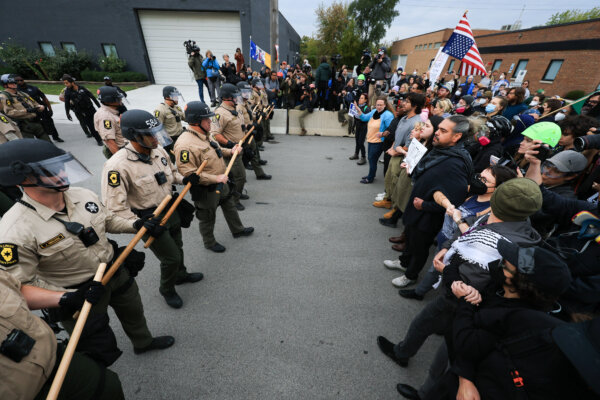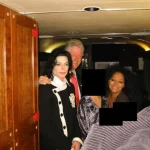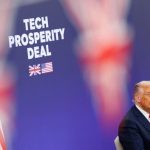(Photo / Chip Somodevilla)
Some supporters of President-elect Donald Trump have been disappointed by his picks to fill out his new national security team, even lobbing accusations of them being “neocons” — but individuals familiar with the transition and the president-elect’s foreign policy record said those picks can be put to use accomplishing an America First agenda.
For Secretary of State, Trump tapped Sen. Marco Rubio, along with Rep. Michael Waltz for National Security Advisor and Rep. Elise Stefanik for United Nations Ambassador. The picks turned heads because they are viewed as having more “hawkish” beliefs. But national security insiders told the Daily Caller that the picks fall in line with the president’s agenda more than many would initially expect.
“If you take a look at what Trump is doing across his cabinet picks, he’s building the MAGA movement to go well beyond his Republican base, which is why he’s plugged in Tulsi Gabbard and Robert F Kennedy. He’s making a bigger tent, and that is the stuff of legacy,” Morgan Murphy, former press secretary to the Secretary of Defense during the Trump administration and National Security Adviser to Sen. Tommy Tuberville, told the Caller.
Over the years, Rubio’s more hawkish positions have shifted to fall increasingly in line with the president-elect’s “America first” agenda. Rubio voted against a foreign aid package earlier this year that included Ukraine funding, but is hawkish on China and Latin America. Waltz, a special forces veteran, previously worked for Vice President Dick Cheney and has expressed aggressive stances on Iran.
Tapped for Defense Secretary, Pete Hegseth is the most unexpected of the president’s national security picks. Hegseth described himself as a “recovering neocon” in an earlier interview with the “Shawn Ryan Show” podcast, explaining that he was once a major supporter of the Iraq war but has since recognized the errors of his views.
The picks, particularly Rubio and Walz, have been attacked by some in the president-elect’s coalition.
“Yesterday was a bad day for those who endorse “America First” in our foreign policy,” former Republican Congressman and presidential candidate Ron Paul tweeted. “With reported Trump appointments of neocons Elise Stefanik (UN Ambassador), Mike Waltz (National Security Advisor), and…Marco Rubio (Secretary of State), many who hoped that Trump 2.0 would be different than Trump 1.0 are feeling dejected and betrayed.”
Yesterday was a bad day for those who endorse “America First” in our foreign policy.
With reported Trump appointments of neocons Elise Stefanik (UN Ambassador), Mike Waltz (National Security Advisor), and…Marco Rubio (Secretary of State), many who hoped that Trump 2.0 would… pic.twitter.com/TB1p3FoBob
— Ron Paul (@RonPaul) November 12, 2024
“The wrong people are happy about Walz [sic],” tweeted New York Post journalist Miranda Devine.
The wrong people are happy about Walz https://t.co/zUt4nMQtv4
— Miranda Devine (@mirandadevine) November 13, 2024
Meanwhile, the likes of John Bolton, former Trump National Security Adviser-turned-critic, praised the picks as having “the correct approach to China.”
However, insiders who spokes with the Caller say the picks show that Trump understands what he needs to govern successfully this time around.
“Trump is now savvy about how Washington works, and likely knows he needs the neocons. They’re more entrenched in D.C. than America first. And there are just more of them. The only kind of foreign policy people that are harping on America first and have been consistently, there’s less than a dozen,” one former Trump national security official told the Caller.
“I think he may be looking at someone who speaks their language, who can help blend the two agendas,” the source added.
Sources explained Rubio was likely picked to be tough on China, something important to the president-elect’s agenda, and that it could’ve been a consolation prize for not getting the VP nod.
“I imagine the Secretary of State position was a consolation to Rubio. Everybody’s trying to strategize what the importance of [the picks] and what policies [Trump’s] putting in place. But I think the pick was more political than it was policy,” the former official told the Caller.
One insider told the Caller that while political consultants and the media speculate about what these picks could mean for Trump’s foreign policy, the source believes the president’s pick comes down to two things.
“Hegseth, Rubio, Waltz, Stefanik, what do they all have in common? They’re all friends and close to President Trump,” a former GOP senate staffer who worked on national security issues told the Caller.
“They know the foreign policy and national security space. The president knows that national security is the one thing you can’t get wrong. Look at Biden,” the source added.
They added that ideology likely wasn’t a primary factor in the selections.
“I think that ideology doesn’t really mean that much, whether it’s neocon or isolationist or Jacksonian or Hamiltonian. At the end of the day, Russia, China, Iran, North Korea, are going to test President Trump in some way, shape or form, and it will be up to Trump and his national security team to decide how they want to respond to that test,” the former GOP senate staffer told the Caller.
When it comes to Rubio’s priorities, Cliff May, the president of the Foundation for Defense of Democracies, told the Caller that he believes the Florida senator understands the threat being posed by China and Iran to the United States. He said he believes Hegseth was picked to be a “communicator.”
“He will need to sort of lead the effort in terms of messaging and communications and working with the President and with Congress to get the kind of military America needs in this century,” May told the Caller.
“I can see why he would not want somebody in charge who is a long time bureaucrat who says, ‘listen, this is all you can do. This is what you can do. I’m not fighting the bureaucracy. I’m going to speak for the bureaucracy.’ He doesn’t want another Lloyd Austin type,” May added.
Several sources predicted a “peace through strength” type of approach to national security, something Stefanik has promoted since being chosen as the U.N. Ambassador.
“Based on his nominees, I think Trump is building a FAFO foreign policy,” John Noonan, a senior adviser to POLARIS National Security, told the Caller. “We want peace. But if you F around with the United States, be ready to find out.”











